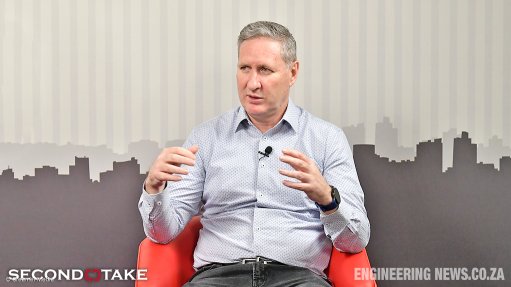How logistics is powering South Africa’s healthcare system
This article has been supplied and will be available for a limited time only on this website.
In South Africa’s healthcare sector, logistics is more than a support function, it’s a lifeline. The secure and timely delivery of pharmaceuticals and medical equipment mean the difference between life and death. In a country grappling with infrastructure challenges, strict regulatory demands, and the urgent need for efficient distribution, the role of logistics providers is becoming increasingly critical.
Leon Bruwer, managing director for Sub-Saharan African sales at FedEx, explains that healthcare logistics, particularly for pharmaceuticals, is one of the most complex supply chains in the world. It is not only highly regulated, but also extremely sensitive to temperature fluctuations. Effective planning is non-negotiable because the margin for error is razor thin. For example, antiretroviral (ARV) medications must be consolidated and delivered with precise coordination to ensure they are properly absorbed into the national distribution systems. Even the slightest misstep can lead to costly delays or product spoilage.
Navigating this environment requires a delicate balance between cost-efficiency and operational precision. Choosing between air, sea, and rail freight involves trade-offs that can significantly impact timing, cost, and the integrity of the cargo. Cold chain logistics - the process of keeping products within a specific temperature range from start to finish - is especially crucial. If the cold chain is broken, the product becomes unusable and must be destroyed, often with formal certification, which adds to the financial and administrative burden.
To manage these risks, FedEx has invested heavily in temperature-controlled storage facilities, insulated containers equipped with ice packs, and near real-time monitoring systems that provide constant visibility throughout the shipment’s journey. Many of these facilities have been made Dangerous Goods Compliant to accommodate materials like dry ice, which is often used in cold chain transport but is classified as hazardous. FedExal infrastructure, FedEx proactively manages customs documentation and certifications to prevent bottlenecks at borders and keep critical medical supplies moving without delay.
Healthcare logistics, however, goes beyond just pharmaceuticals. The delivery of medical instruments, surgical tools, and diagnostic devices is equally time sensitive. While these items don’t typically require temperature control, they must still arrive intact and on schedule. A single missing or delayed piece of equipment can halt an entire procedure.
Technology plays a key role in managing both risk and accountability. Although direct intervention is limited once a shipment is airborne, monitoring tools provide crucial data that confirms whether a shipment has remained within the required parameters. In this sense, logistics has become as much about verification as it is about transportation, ensuring compliance with medical board standards and, ultimately, protecting patient safety.
The adaptability of FedEx in this space is evident in its recent move to secure dedicated pallet allocations. This shift gives the logistics team greater control over shipping schedules, which can reduce delays and prevent the cold chain from being compromised. By owning more of the process, FedEx can better plan for sensitive shipments and maintain the consistency that the healthcare sector demands.
As South Africa continues to build a more resilient and accessible healthcare system, the logistics industry is emerging as a foundational pillar. Whether it’s delivering life-saving medication or ensuring that surgical equipment arrives in time for a critical operation, logistics providers like FedEx are making it possible to meet patients’ needs securely, efficiently, and with care.
Comments
Press Office
Announcements
What's On
Subscribe to improve your user experience...
Option 1 (equivalent of R125 a month):
Receive a weekly copy of Creamer Media's Engineering News & Mining Weekly magazine
(print copy for those in South Africa and e-magazine for those outside of South Africa)
Receive daily email newsletters
Access to full search results
Access archive of magazine back copies
Access to Projects in Progress
Access to ONE Research Report of your choice in PDF format
Option 2 (equivalent of R375 a month):
All benefits from Option 1
PLUS
Access to Creamer Media's Research Channel Africa for ALL Research Reports, in PDF format, on various industrial and mining sectors
including Electricity; Water; Energy Transition; Hydrogen; Roads, Rail and Ports; Coal; Gold; Platinum; Battery Metals; etc.
Already a subscriber?
Forgotten your password?
Receive weekly copy of Creamer Media's Engineering News & Mining Weekly magazine (print copy for those in South Africa and e-magazine for those outside of South Africa)
➕
Recieve daily email newsletters
➕
Access to full search results
➕
Access archive of magazine back copies
➕
Access to Projects in Progress
➕
Access to ONE Research Report of your choice in PDF format
RESEARCH CHANNEL AFRICA
R4500 (equivalent of R375 a month)
SUBSCRIBEAll benefits from Option 1
➕
Access to Creamer Media's Research Channel Africa for ALL Research Reports on various industrial and mining sectors, in PDF format, including on:
Electricity
➕
Water
➕
Energy Transition
➕
Hydrogen
➕
Roads, Rail and Ports
➕
Coal
➕
Gold
➕
Platinum
➕
Battery Metals
➕
etc.
Receive all benefits from Option 1 or Option 2 delivered to numerous people at your company
➕
Multiple User names and Passwords for simultaneous log-ins
➕
Intranet integration access to all in your organisation


















